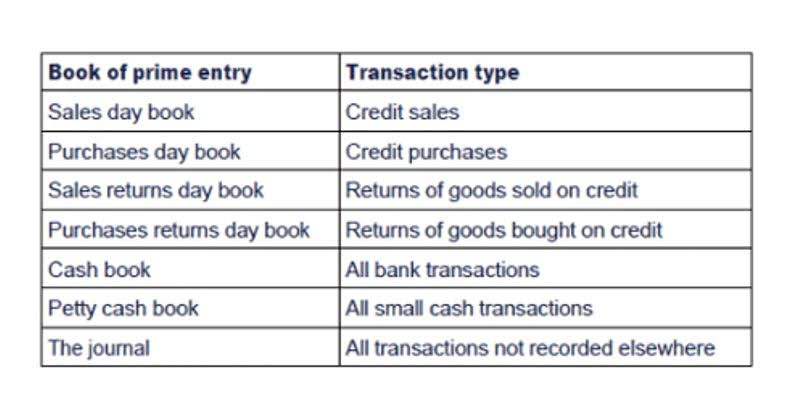4 Types of Audit Reports And How to Build One OnBoard Board Management Software Board Portal Board Intelligence

An auditors report was not always a statutory requirement for public listed companies in the United States. However, following the boiler room operation of the 1920s and subsequently the stock market crash of 1929 there was a need to safeguard investors. It prompted the enacted of the U.S. securities laws, that is, the Securities Act of 1933 and the Securities Exchange Act of 1934 which require companies to publish an annual report that provide public disclosure of a company’s audited financial statements. Despite, the attempt to safeguard investors by enacted of the U.S. securities laws another scandal rocked the securities market in 2002; a corporate accounting scandal. It seemed public disclosure did not deter internal corruption and company’s management cleverly connived with auditors to provide fraudulent financial statements. Many companies collapsed including Tyco International, Adelphia, Enron, Peregrine Systems, and WorldCom among others costing investors billions of dollars.
Preparing for a Planning Meeting With Business Stakeholders
An unmodified opinion is the same as an unqualified opinion, but the difference comes down to context. Clean audit reports for publicly listed companies have an unqualified opinion, while those same reports for private companies are considered unmodified. As mentioned, the what is an audit report qualified audit report affects two primary areas in the audit report. These include the opinion section, which becomes the Qualified Opinion paragraph. Similarly, it consists of the basis for the opinion section, which becomes the Basis for Qualified Opinion paragraph.
Types of Audit Reports (And How to Build One)
- The general consensus is that a disclaimer of opinion constitutes a very harsh stance.
- This may be advantageous to specifically place certain employees with very niche experience on the team.
- The paragraph will also differ when the qualified opinion is for material misstatements or the unavailability of sufficient appropriate audit evidence.
- The purpose of an auditor’s report is to give an opinion on an organisation’s financial statements.
- As mentioned, these usually include material misstatements and sufficient appropriate audit evidence being unavailable.
- If the auditee is not a going concern, it means that the entity might not be able to sustain itself within the next twelve months.
As a result, an internal auditor assesses the outcome of an objective that may not be easily quantifiable. Audit findings are provided in the audit report when action is required to correct a deficiency in a process or its related controls.15 The five key elements, or attributes that should be addressed when presenting an audit finding, are described in figure 2. The Opinion paragraph of the Report should indicate the Financial Reporting framework used to prepare the Financial Statements. It should state the Auditor’s opinion as to whether the Financial Statements give a true and fair view in accordance with the financial reporting framework & where appropriate, whether the Financial Statements comply with the statutory requirements.
- Disclaimer of Opinion Audit Report is often problematic from the perspective of the company, because it also raises several suspicions regarding the efficacy of the company, and if there are any fraudulent activities that the organization is involved in.
- Usually, these entities make decisions regarding their relationship with a company based on the financial statements.
- It is essential to have good accounting practices so that the audit of accounts goes well.
- The scope paragraph is omitted in its entirety since, effectively, no audit was performed.
- By lining up your SMEs ahead of time, you can smooth out your audit workflow and reduce friction.
Disclaimer of Opinion Audit Report

An adverse opinion is reported, if the financial records as audited are found to be misrepresented, misstated and when considered as a whole does not conform to GAAP and therefore has a pervasive effect on the financial statements presented. It is a red flag to current and potential investors and can cause the company’s stock prices to plummet. Although such an opinion is rare for a public listed company due to strict regulations, nevertheless, an occurrence can result in de-listing of a company’s stock from the securities exchange. In such a scenario the audited company will be required to correct the recommendation and obtain another auditor report thereafter.
- Audit report is usually intended for the benefit of the shareholders; however other users that have a business relationship with the company also benefit from the report.
- Internal auditors who take a risk-based approach, create and document audit programs from scratch — and do not rely on template audit programs — will be more capable and equipped to perform audits over areas not routinely audited.
- It is important to note that auditor reports on financial statements are neither evaluations nor any other similar determination used to evaluate entities in order to make a decision.
- Still, auditors must follow certain standards and principles when conducting an audit and preparing an auditor’s report.
- It also states that the auditor must form his opinion based on the information provided.
- Performing an audit based on internal company information is helpful for assessing the operating effectiveness of the process’s controls.
- Audit report refers to a formal opinion provided by auditor regrading the validity and reliability of financial statements of organization.
- Adhering to these standards will also prove invaluable to the IT auditor when, as is often the case, the results of the audit report are challenged.
- The title of the audit report should be simple and include the word “independent”.
- Alternatively, the company may launch an internal environmental audit to explore how environmental impact its eco-friendly changes had on the planet last year.
An unqualified Audit Report is defined as the report that is issued by the auditors in order to express their opinion about the financial statements not containing any material misstatement. This is also referred to as a clean report because of the fact that it gives a heads up that all the affairs within the company are dealt with under accountancy principles. Public companies are required to perform certain levels of external financial auditing where a completely independent third party provides an opinion on the company’s financial records. Companies may want to dive further into audit findings or perform an internal financial audit in preparation for an external audit. Many of the tests between an internal or external auditor may be similar; the nature of independence separates the two types of audits for financial audits.
Report to the Mayor and City Council on City Comptroller Audit Operations – New York City Comptroller
Report to the Mayor and City Council on City Comptroller Audit Operations.
Posted: Fri, 02 Feb 2024 08:00:00 GMT [source]

This opinion varies depending on the company’s compliance with the GAAP guidelines and the accuracy of the available financial information. Adverse audit report is the report that auditors issue saying that there is a material misstatement and it affects financial statements as a whole. A disclaimer of opinion differs substantially from the rest of the auditor’s reports because it provides very little information regarding the audit itself, and includes an explanatory paragraph stating the reasons for the disclaimer. The report consists of a title and header, a main body, the auditor’s signature and address, and the report’s issuance date.
Auditor’s opinion
If auditors cannot collect audit evidence that is sufficient and appropriate, they will use a qualified audit report. Similar to the above scenario, the effects of these issues must not be pervasive. A qualified audit report is considered to be a report that is issued by the auditors in the scenario where they feel that the financial statements are materially misstated, or they are not fully convinced with the way the company is operating.
